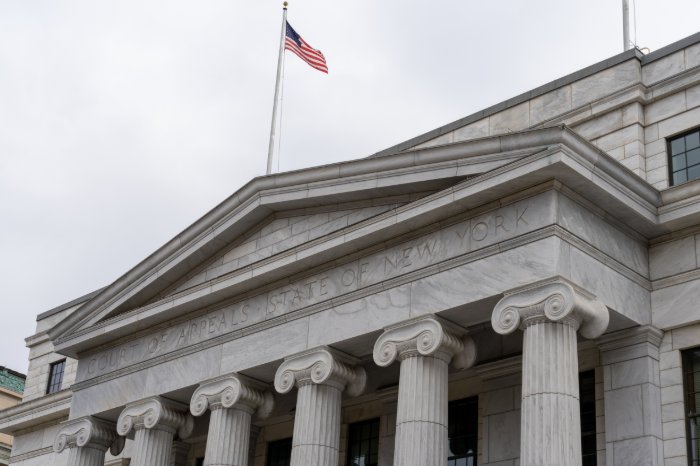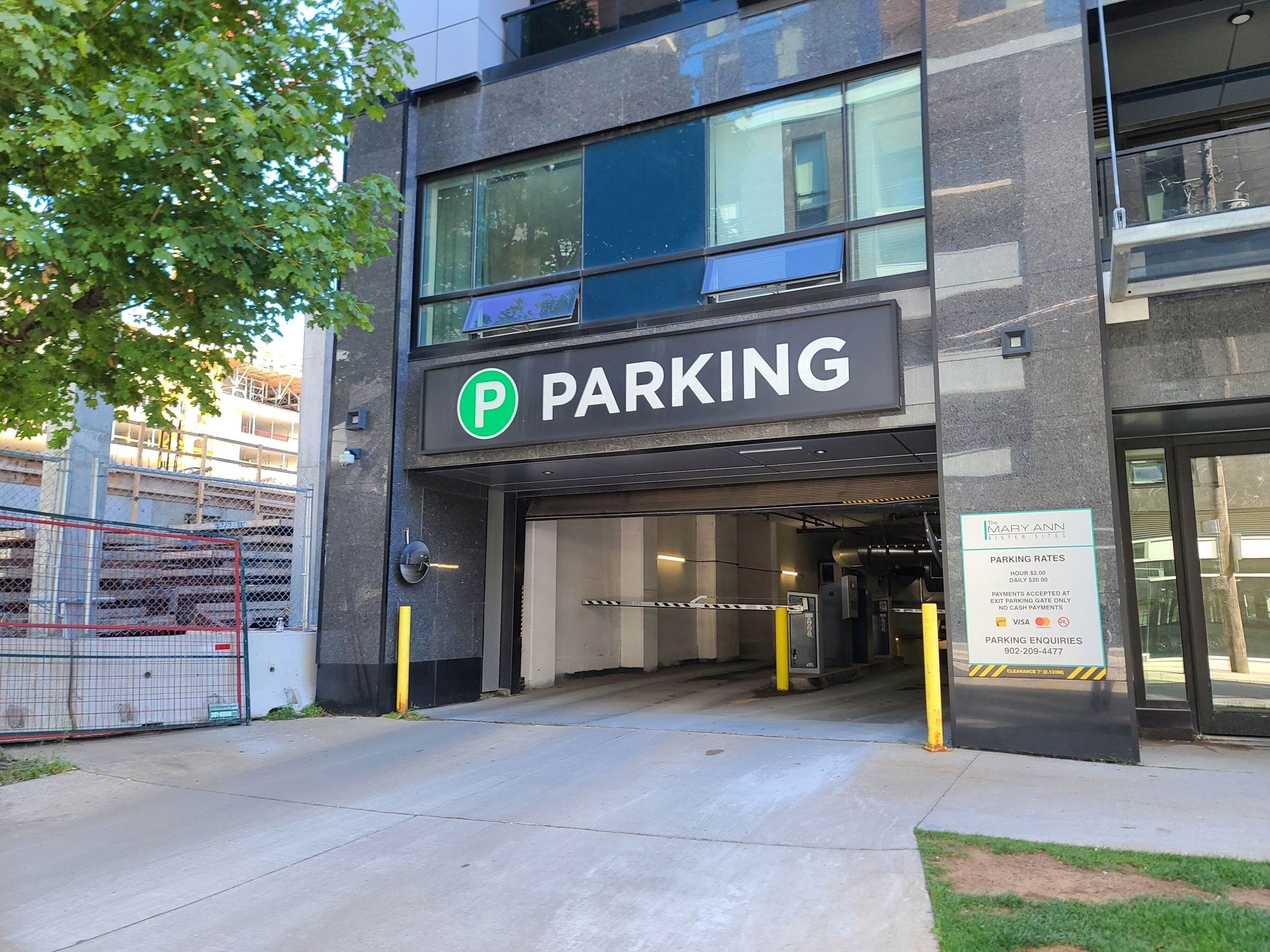This newsletter explores the emerging legal topics and issues affecting the condominium and cooperative services industry. Thought-leading attorneys from Moritt Hock & Hamroff’s Condominium and Cooperative Services Practice Group share their legal insight, experience and best practices on this rapidly evolving area of law.
As always, if you have any questions regarding the matters raised in this Digest, please feel free to contact Bill McCracken of our New York City office at wmccracken@moritthock.com, or your regular contact at the firm.
About The Group
Moritt Hock & Hamroff’s Condominium and Cooperative Services Practice Group represents clients in all aspects of condominium and cooperative law.

Appeals Court Refuses To Require Co-op To Transfer Shares To Unmarried Partner
In late December 2024, the New York Court of Appeals issued an interesting and contentious decision reviewing the meaning of “marital status” under the NYC Human Rights Law (NYCHRL) in the context of the standard “death of lessee” provision found in many cooperative proprietary leases.
The case is titled Matter of Maryann McCabe v. 511 West 232nd Owners Corp. (Note to practitioners: If the name of the respondent rings a bell, this happens to be the same Riverdale co-op building involved in the seminal Jennifer Realty litigation, in which the Court of Appeals issued one of the most cited and influential decisions in the field of co-op and condo law).
Here, Ms. McCabe was a resident of the co-op with David Burrows, her “long-time romantic partner.” Crucially, however, they were never married, and only Mr. Burrows was on the stock and lease. After Mr. Burrows died, the co-op issued a notice to cure directing Ms. McCabe to vacate the apartment.
In response, Ms. McCabe sought to have the shares transferred to her in reliance on paragraph 16(b) of the co-op’s proprietary lease, which provided that “[i]f the Lessee shall die, consent shall not be unreasonably withheld or delayed to an assignment of the lease and shares to a financially responsible member of the Lessee’s family (other than the Lessee’s spouse as to whom no consent is required).”
The co-op denied the application because (a) Ms. McCabe was not Mr. Burrows’ “spouse,” and therefore not entitled to bypass the board’s consent, and (b) even if she was considered part of the shareholder’s “family,” she was not, in the board’s determination, sufficiently “financially responsible.”
Ms. McCabe then filed a petition challenging the board’s refusal under the NYCHRL’s prohibition on marital status discrimination, which the motion court denied, which denial was eventually appealed up to the Court of Appeals.
A divided Court affirmed the dismissal of the petition. After a lengthy and in-depth review of the statute’s legislative history, regulatory guidance, and case law precedents, the majority concluded that while the NYCHRL was intended to prohibit discrimination against persons on account of their being married or single, it was not intended to expand what it meant to be a “spouse” of someone else. In other words, as the court put it, Ms. McCabe “was not denied an automatic transfer of Burrows’ unit merely because she was unmarried, but because of her relationship to a particular person—specifically, because she was not married to Burrows.”
Two judges in separate dissenting opinions warned that the majority’s interpretation of the “death of lessee” provision unfairly excludes committed but unmarried couples, effectively discriminating against Ms. McCabe for not having gotten married to Mr. Burrows. Ms. McCabe would have been entitled to become a shareholder if she were married, but instead was denied this right because of the Court’s narrow construction of “marital status.”
It would not come as a surprise to see a legislative response to this ruling, by which New York City would amend the Administrative Code to more clearly protect those in Ms. McCabe’s position.
Contributed by Nicole Malen

Court Issues Useful Guidance On Parking Garage Repairs In Condominiums
In Board of Managers of the 900 Park Avenue Condominium v. Park Park Assoc., LLC., Sup. Ct. N.Y. Co. Index No. 655999/2021, the court issued a decision that will serve as a useful guide for condominium associations allocating responsibility for garage repairs required under Local Law 126.
Local Law 126, as readers of this Digest will recall, is a comprehensive inspection, repair, and maintenance program for parking garages passed by the NYC City Council in 2021, similar in scope to the notably demanding façade repair and inspection requirements of Local Law 11. Just as with Local Law 11, the costs and expenses required to perform the repairs and maintenance needed to comply with Local Law 126 can be substantial. And where there are significant costs and expenses involved, there inevitably will be disputes about which party should pay for them.
For building owners that rent out garage space to a parking operator, it is relatively straightforward – the lease will govern. But for commercial and mixed-use condominiums, where a commercial unit owner owns the garage space and either operates it themselves or rents it out to a third party, the analysis is more complicated.
In 900 Park Avenue, the court had to tackle this more complicated scenario. This case was brought by the board of managers of the condo association against its garage unit owner, which unit owner had operated the building’s parking garage for several decades.
According to the board of managers, the garage unit owner had “failed to regularly maintain or repair the Garage Unit resulting in the severe degradation of the property,” which would require hundreds of thousands of dollars in repairs that the board of managers did not want to be responsible for. In response, the defendant argued (while denying that it had ever neglected the space) that any garage repairs would be a common expense that should be paid for by the association as a whole. The board of managers then moved for summary judgment.
On October 31, 2024, the court issued a decision denying plaintiff’s motion, and in doing so, outlined how condos will most likely need to approach these garage repair issues. First, what do the governing documents say about the floors and ceilings of the garage unit? Does the declaration define them as common elements (and therefore the responsibility of the condo association)? Or are they defined as part of the unit itself, and therefore the unit owner’s problem? What about the waterproofing membrane typically installed in garages to protect the concrete slab itself? Is that a common element or something else?
The second, more fact intensive inquiry is whether the garage unit owner had a duty to maintain the floors, slabs and waterproofing membranes in the parking garage, and if so, whether it neglected that duty.
In its decision, the court went through these factors and surveyed prior caselaw on garage repairs before ultimately deciding that issues of fact on both issues precluded a determinative outcome without additional discovery. That holding aside, for the many condominium associations and unit owners contemplating significant garage repair expenses in light of Local Law 126, 900 Park Avenue will act as an important reference point for allocating financial responsibility for garage repair work.

Quick Hits On The CTA & Local Law 97
Monitoring the trials and tribulations of the Corporate Transparency Act is not well-suited to a monthly newsletter, because the winds shift seemingly every few days. As of the beginning of February, the CTA is not being enforced, despite the Supreme Court vacating a previous Fifth Circuit injunction against the CTA. This is because there is another injunction issued by another judge in the Eastern District of Texas that the Supreme Court did not address and has not vacated. Going forward, if any significant developments occur regarding the CTA, rest assured that our firm promptly will issue a Client Alert reviewing the implications.
We have been warning clients for years about the need to prepare for Local Law 97 filings due on May 1 each year beginning this year. Not only do buildings need to make sure they have the proper measurements for their buildings (reminder: gross floor area, required for LL97 compliance, is not the same measurement as your building’s gross square footage measurement on file with the NYC Department of Finance), this year building owners also need to certify that they have completed their lighting and submetering compliance work under Local Law 88.
At this point, covered buildings should have hired a qualified registered design professional, or RDP, who would be advising them on all of these issues. If you live in a covered building and do not have an RDP already retained, you should be in touch with counsel immediately. Time is running out, and the minimum penalty for failure to file is an eye-watering $12,500 per month.